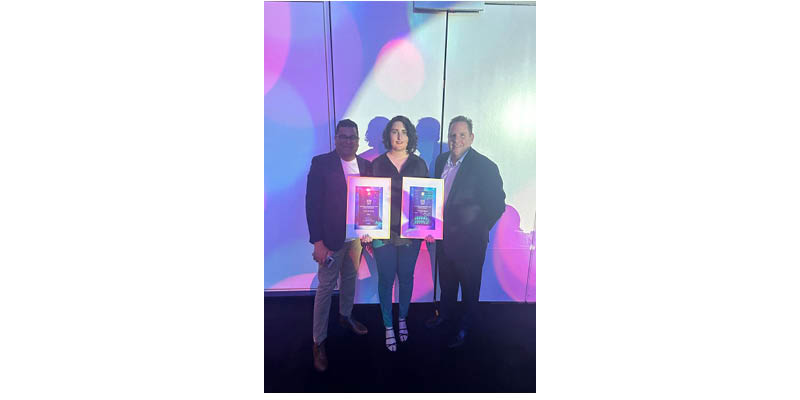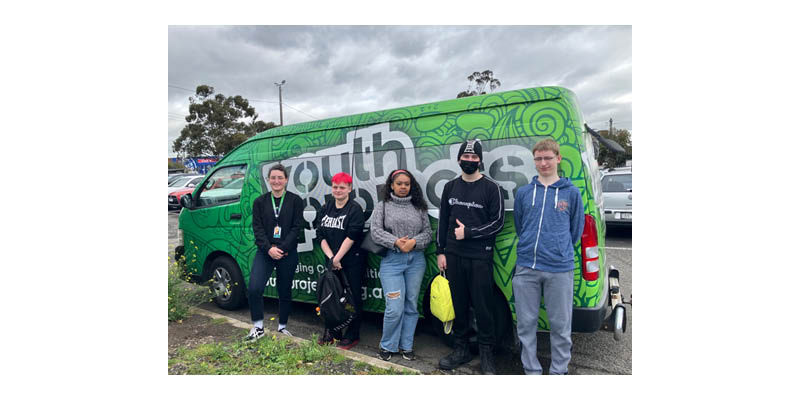
Service partner spotlight: Youth Projects employment consultant Amanda Baker
Service partner spotlight: Youth Projects employment consultant Amanda Baker
Amanda received the Highly Commended award for Employment Consultant of the Year at the NESA awards for excellence.
The National Employment Services Association (NESA) has been the peak body for Australia’s employment services sector for almost 30 years. The organisation supports employment services providers in offering “their very best” to participants and employers across the Workforce Australia, Disability Employment Services (DES), Community Development Program (CDP), and Transition to Work (TTW). programs.
Each year since being implemented in 2004 the NESA Awards for Excellence have highlighted the impact of employment services providers improving the economic and social wellbeing of individuals, families and communities through employment inclusion, in partnership with employers.
CoAct sat down with Amanda to discuss her work, her achievements, and her plans for levelling up after receiving this prestigious recognition.

What’s your role at Youth Projects?
I was brought on board by Youth Projects as a Youth Coach in July 2022 and transitioned into the recruiter role in June 2023. I currently have a caseload of up to 16 young jobseekers, and I mentor them, give them employment advice about the opportunities available to them, help with the paperwork for white cards or first aid, and refer them back to their youth coaches if they need further training.
I reverse market candidates and build up client bases, as well as building up the young person and linking them with suitable employers.
What would you say has been a standout moment in this role?
I educate young people about the other jobs out there and if those roles require courses I’ll send them back to the youth coach so they can connect them with the right training. Once they’ve completed they’ll come back to me and I’ll connect them with an employer, or work with them while they’re studying and find them a casual part time role to help provide some income and alleviate financial stress.
I get to see young people on a daily basis and provide them with information on what clothes they might be expected to wear, any potential barriers such as transport, mental health or housing issues, and I’ll even provide vouchers for Kmart or PPE or whatever they need.
In the recruiter role that I’m in now I’m still working one on one with the clients and when the youth coach sends them through to me I put strategies in place to educate them on what jobs are out there.
I’ve taken them to places like The Gordon for information sessions on trades because a lot of the time the youth cohort we work with don’t know that there are multiple opportunities for early school leavers, beyond the most popular choice of warehousing.
Why do you think warehousing jobs are so popular with your clients, and what’s behind your decision to raise awareness about other opportunities?
Warehousing pays quite well, starting at around $30 an hour for most jobs and you can go all the way up to $45 an hour without requiring any expertise or previous experience in a similar role.
The issue I find with warehousing is that it’s sporadic work, it’s not consistent. So young people see the $30 hourly rate and choose that over doing an apprenticeship for around $18 an hour but I’m working on educating them about what that pay looks like long term. Because yes you can move up in warehousing, but they do over hire a lot and because of that it’s a casual-style system where they might run out of work, or you might show up late and they’ll just get the next person in and they won’t give you shifts after that. So I’m focused on educating young people on the range of other jobs out there.

What do you think you’re doing this differently in this role that’s getting standout results?
I’ve kind of taken examples from people that I’ve looked up to who are trying different methods and getting results. The main focus for me is on building relationships with some of the bigger companies around Victoria and then building their relationships with each young person.
As an example, I noticed through feedback that a real issue can be young people’s tendency to rock up late, or not at all, without telling their employer, or communicating any issues. So now I’m educating young people about what employers are expecting.
It takes a bit of confidence to have those conversations too, maybe sometimes it’s just easier to duck the conversation than it is to get in there and face it. I’ve been there too so I speak to them from a place of experience, passing on that that’s how I did it when I was younger too but then I learned that it’s less hassle for everyone to just have the conversation,
These are small but impactful shifts that ultimately stop them from falling out of work so that they have a better success rate of staying in their jobs.
The other side of your role is building relationships with employers – how do you go about that?
Sometimes it begins with word of mouth and I’ve had employers reach out to me because they’ve seen me working with one of their contacts and sending them really good candidates. They’ll come to me and explain that’s why they got my details and ask me to send them some people too.
I tell them a bit about Youth Projects and how we’re a not-for-profit that assists 15 to 24 year olds to find full employment by linking them to courses, running workshops like my employer expectations workshop, and building up their confidence base with activities like mock interviews.
I also spend a lot of time on Linkedln, sending out so many messages that I joke it’s like going fishing. Sometimes they bite, sometimes they don’t. With the employers who do reach I will go out and see their sites, get an idea of how they onboard new staff. They will also come out to see me and some have run information sessions. After that I’ll keep in regular contact with them.
Are there any specific industries you prefer to approach?
I’ll work with employers from any industry really. As I mentioned I do get a lot of warehousing enquiries because they’re always looking and it’s a relatively easy industry for young people to get into. But I’m also approaching apprenticeship hiring companies, potential traineeship placements and local businesses.
I work with Wyndham City Council in their Opportunity Wyndham recruitment program too. It’s backed by the Victorian government and provides local businesses with free tools, resources and recruitment services that connect them with locals to build stronger, more inclusive workplaces.
So they go out and build relationships with big local employers like Green Space, an interior plant service I work with by referrals candidates who I’ll also put through pre-employment training for horticulture or whatever they need before connecting them.
Opportunities like this are the reason I’m educating young people about what else is out there.
What’s next for you, what would you like to be achieving in six to 12 months time?
I wouldn’t mind going into the training space, training up other coaches or recruitment partners on some of the methods that have worked for me.
Do you think your experience of being on the other side as a jobseeker gives you an edge?
Well since I became a recruitment partner the feedback I’ve received from other youth coaches is that they like the way I actually sit down with each young person. I pre-screen them, check they tick the employers’ boxes and that they’re good to go before sending them out to suitable employers.
Employers like that I’m not just sending them 50 young people all at once because they said they wanted work. I actually take the time to meet with young people, ask them questions, explore other options or arrange information and taster sessions, and then based on what they’re saying I can see what really is the right job for each individual.
Register here to find out more about how we can provide dedicated job search support and jobseeker programs to help you reach your employment goals.
Post categories
- Employers (20)
- Job seeker tips (173)
- News (56)
- Real stories (144)
- Referral partners (1)







